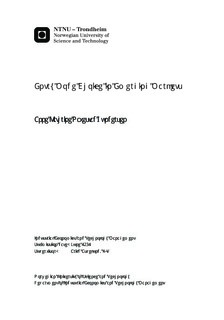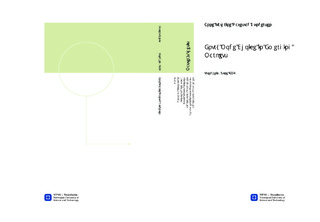| dc.description.abstract | As the mature markets of developed economies have become increasingly saturated, firms are turning their attention towards emerging markets for further enterprise growth. However, these countries often present significant challenges for foreign entrants, forcing firms to adapt their strategies to the new context. While MNEs? entry mode choice is an extensively studied field, there is a deficit in the entry mode research on SMEs, and even more so when it comes to entry into emerging markets in particular. This thesis seeks to broaden the field by exploring the extent to which existing entry mode literature may be generalized to apply also to SMEs entering emerging markets. In order to draw inferences about theory, the objective of this thesis was to investigate which factors that influence the entry mode choice of SMEs in emerging markets, and how these factors influence the choice. To address the objective, this thesis has performed a qualitative case study of four Norwegian technology-based SMEs entering Brazil.
The theoretical perspectives which were proposed to be most relevant were transaction cost theory (TCT), resource based theories (RBTs) and institutional theory (IT); leading theories within MNE research on both entry mode choice as well as emerging market strategy. Eight factors were found to influence the entry mode choice, of which five were drawn from the three theoretical perspectives. These factors are country-specific experience, mode experience, uncertainty of demand, cultural differences, formal institutional risk, regulatory pressures, operating costs in the host country, and the resource base of the firm. The first six influence the desired degree of resource commitment, flexibility, control and risk, as well as the need for a local partner, whereas the two latter acts as constraints by narrowing the range of feasible entry modes. As a result entry mode choice of SMEs was found to be restrained to the degree that certain theoretical expectations were overruled by cost and resource considerations, as well as risk aversion.
As a consequence, this thesis found that TCT may not be readily extendable to resource constrained and risk averse SMEs. Furthermore, due to the idiosyncratic nature of emerging markets, traditional stage models and their emphasis on general international experience is of lower value in these contexts. Still, other aspects within resource based theories were found to provide explanatory power. SMEs appear to apply previously developed mode capabilities, and leverage on external organizations when they lack important context-specific capabilities. Institutional theory is the theoretical perspective which provides the greatest insight into the entry mode choice of SMEs into emerging markets. The institutional environment of emerging markets constrains business activities and increases the cost of doing business. At the same time, institutions create pressures for conformity and an increased need for context-specific resources. Still, further research is needed to support the findings of this study. Moreover, as institutions constitute the domain in which the SME and its transactions are embedded, this study advocates the need for further investigation of interactive effects between institutional theory and other theoretical perspectives. | |

